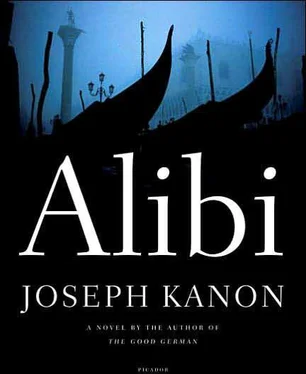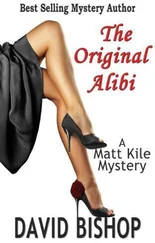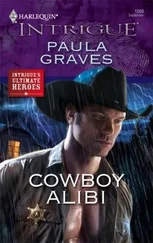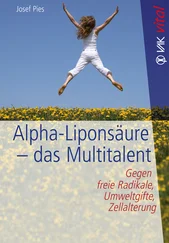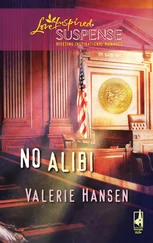Joseph Kanon - Alibi
Здесь есть возможность читать онлайн «Joseph Kanon - Alibi» весь текст электронной книги совершенно бесплатно (целиком полную версию без сокращений). В некоторых случаях можно слушать аудио, скачать через торрент в формате fb2 и присутствует краткое содержание. Жанр: Триллер, на английском языке. Описание произведения, (предисловие) а так же отзывы посетителей доступны на портале библиотеки ЛибКат.
- Название:Alibi
- Автор:
- Жанр:
- Год:неизвестен
- ISBN:нет данных
- Рейтинг книги:3 / 5. Голосов: 1
-
Избранное:Добавить в избранное
- Отзывы:
-
Ваша оценка:
- 60
- 1
- 2
- 3
- 4
- 5
Alibi: краткое содержание, описание и аннотация
Предлагаем к чтению аннотацию, описание, краткое содержание или предисловие (зависит от того, что написал сам автор книги «Alibi»). Если вы не нашли необходимую информацию о книге — напишите в комментариях, мы постараемся отыскать её.
Alibi — читать онлайн бесплатно полную книгу (весь текст) целиком
Ниже представлен текст книги, разбитый по страницам. Система сохранения места последней прочитанной страницы, позволяет с удобством читать онлайн бесплатно книгу «Alibi», без необходимости каждый раз заново искать на чём Вы остановились. Поставьте закладку, и сможете в любой момент перейти на страницу, на которой закончили чтение.
Интервал:
Закладка:
“I know,” my mother said, patting her hand again.
“Not for the world.”
“You’re old friends,” Cavallini said, a polite intervention.
“Since the Bronze Age,” Celia said, herself again, glancing at him. She hugged my mother. “Don’t mind me. I just get funny in church. Everybody being so good. You know.”
“Signora Miller,” Cavallini said. “He’s waving to you. It’s your boat?”
“Yes, thank you.”
“So you took down the gondola,” Cavallini said to me.
“No, it’s hired. The marchesa doesn’t want us to use hers.”
“Just the other boat.”
“Maybe,” I said. “When the weather’s better.” Making a point of it, consistent, but Cavallini seemed not to have heard, busy now with Celia.
“May I offer you a ride somewhere?” he said, courtly, making Celia smile.
“God, would you? Just across. I’m going to swim to Harry’s if I don’t get a drink soon.”
“A long morning,” he said, his voice pleasant but his eyes, just for a second, flecked with disapproval. I looked around for his wife, but she seemed to have gone ahead on her own, leaving Cavallini to the foreigners. “You permit?” he said, taking Celia’s elbow, suggestive, but I saw that the point for him was the flirtation itself, nothing more, a game to distract. There hadn’t been a girl in Maestre either. And he’d already gone through Gianni’s papers.
“What did she mean about Giulia?” I said to my mother.
“Nothing. Just some idea of Bertie’s. About the engagement.”
“You mean she didn’t approve?”
“I didn’t say that. She just didn’t come to the party. A cardinal sin in Bertie’s book, of course. You can imagine.”
“But didn’t she?”
“Darling, ask her. Gianni never said so. You were the one he was worried about.” She stopped on the stairs, lifting her veil and staring for a minute across the water. “You know, children never like things to change. But they do.”
We joined the flotilla of boats heading up the canal to Gianni’s house, Claudia fidgeting beside me, restive, wanting it to be over. The sun had come out, the early Venetian spring that had eluded Mimi, making the buildings shine, scrubbed fresh by the rain. At Ca’ Maglione footmen lifted us onto a floating dock between striped mooring poles, like Mimi’s ball again, without the umbrellas. A long staircase lined with candelabra led up to the piano nobile, the usual Venetian layout. The ballroom was not as pretty as Mimi’s but just as large, done in red damask and heavy gilt chairs, like a version of La Fenice. Everything gleamed, spotless. How large a staff did it take to keep it going?
“I thought you said he had no money,” Claudia whispered to me, looking around.
“I didn’t say broke.” But in fact the room made me uneasy. It was not what I’d expected. No frayed upholstery, no chipped pieces. Nothing needed repair. The war might never have happened.
A long table had been set out with plates of biscotti, coffee cups, and thin glasses for vin santo-spare but appropriate, a reception, not a party. People spoke softly. Near one end Giulia was being kissed by an old man, just a movement to the cheek, hands placed over hers. When he moved back, she turned to the next in line, so that her face was toward us. I stopped. She had the kind of delicate features that went with the convent school posture, but her face, soft and composed, was slightly long, the one trace of her mother’s family. Otherwise, she looked exactly like Gianni, the same wavy hair, broad-set eyes. She was wearing a black dress with a small white bow at the neck, and for one awkward second I saw Gianni in his cutaway, arriving to take my mother to the ball, even the same quizzical look in his eyes. The look, at least, was real. I realized I must be staring and turned away.
“There’s Giulia,” my mother said. “Come and meet her.”
“Later,” I said. “I want some coffee. You go.”
“There’s nothing wrong, is there? You look all white.”
“No, I just need some coffee.” Eager now for her to leave.
“You’ll be nice,” she said, looking at me, a question. “You know you were almost brother and sister.”
“Yes, almost.”
“What’s wrong?” Claudia said to me when my mother left.
“She looks just like him.”
Claudia peered down the table at her. She was greeting my mother now, not with a kiss, but polite. “The eyes, a little.”
“All his features.”
“No, I don’t see that. The eyes, yes. His eyes were like that.” She looked away, then reached over and picked up a coffee cup. “What a pair we are. Standing here talking about his eyes, a man we-” She took a sip of coffee, still looking down.
“I’ll have to say something to her.”
She was leading my mother out of the room.
I looked around. “Who are they? Do you know any of these people?”
“From the newspapers. Il bel mondo.” Claudia said.
“What did the eulogy say?”
“A humanitarian. A savior of men.”
“Christ.”
My mother was back in the room, carrying a brown envelope. Of sentimental value.
“So, another meeting.” Father Luca was leaning over the table to pick up a biscotti. “A very different occasion,” he said sadly, looking at it as if he were referring to the food.
“Yes, very different. A beautiful service, though.”
He nodded. “Father Prato,” he said, “always excellent.” A professional appraisal. He bowed to Claudia, who acknowledged it, then glanced away, uncomfortable.
“He will be buried tomorrow?” I said, making conversation. “In the country, not at San Michele?”
“Yes, of course, the country. All the Magliones are buried there.”
“I didn’t realize he had a house there.”
He looked at me, stupefied, as if this were too absurd to answer. “Yes,” he said finally, “they always preferred it there. Not Gianni, he loved Venice, but the others.” He waved his hand. “Always this love of land. Well, you can see how lucky it was for them. Poor Venice. The trade declines, what do the families do? Buy more ships. But the Magliones? Land. And now the other families are gone. How many of these are left?” he said, indicating the palazzo. “In the family? Not a hotel. Not a museum. Still Ca’ Maglione. It’s because they bought land. It’s an irony, yes? A house in the water, still here, all because of land.”
“How much do they own?”
He looked at me again. “You mean exactly? I don’t know. These are private matters, family matters-”
“I’m sorry. I didn’t mean it that way. Just in general. It’s a farm?”
“A farm? But Signor Miller, the Magliones are the largest landowners in the Veneto. Surely you knew that.”
“No,” I said, disconcerted.
“Yes, from the Brenta-” He started spreading his arms, then stopped. “Well, considerable property. Of course, Giulia, the first wife, also had property. Near Ferrara.” He paused. “His first-his wife, I should say. Now she will be the only one.” He placed his hand on my arm. “I am so sorry for your loss.”
I looked at him, then nodded, a silent thank-you. “I wish I’d known him better.” Something to say.
Surprisingly, this seemed to move him. He gripped my arm tighter. “Your mother. She’s-?”
“It’s hard for her.”
Father Luca shook his head in sympathy. “To lose a man like that. And think of the family. Always taking care of everybody. Paolo, everybody. Even as a child you could see it-the head of the family.”
“But I thought Paolo was older.”
“Yes, but Gianni was the head. Even then. Boys. Well, we were all boys. And now? A tragedy, a tragedy. So much evil in the world now.”
Читать дальшеИнтервал:
Закладка:
Похожие книги на «Alibi»
Представляем Вашему вниманию похожие книги на «Alibi» списком для выбора. Мы отобрали схожую по названию и смыслу литературу в надежде предоставить читателям больше вариантов отыскать новые, интересные, ещё непрочитанные произведения.
Обсуждение, отзывы о книге «Alibi» и просто собственные мнения читателей. Оставьте ваши комментарии, напишите, что Вы думаете о произведении, его смысле или главных героях. Укажите что конкретно понравилось, а что нет, и почему Вы так считаете.
